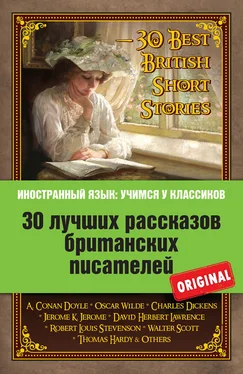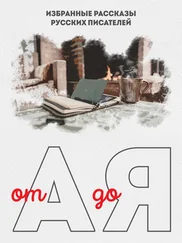1 ...5 6 7 9 10 11 ...113 ‘Well, I’ve naught on my hands now,’ said the farmer, ‘so I reckon we will go.’ The two walked together to the cottage. No smoke issued from the chimney, and the door was shut. Jabez knocked, but there came no answer; so he entered, followed by his wife.
There was in the cottage but the kitchen, with one bedroom at the side. The hearth was cold. ‘There’s some’ut up,’ said Mrs. Hockin.
‘I reckon it’s the old lady be down,’ replied her husband, and, throwing open the bedroom door, he said: ‘Sure enough, and no mistake – there her be, dead as a dried pilchard.’
And in fact Auntie Joanna had died in the night, after having so confidently affirmed her conviction that she would live to the age of a hundred and twenty-seven.
‘Whativer shall we do?’ asked Mrs. Hockin. ‘I reckon,’ said her husband, ‘us had better take an inventory of what is here, lest wicked rascals come in and steal anything and everything.’
‘Folks bain’t so bad as that, and a corpse in the house,’ observed Mrs. Hockin. ‘Don’t be sure o’ that – these be terrible wicked times,’ said the husband. ‘And I sez, sez I, no harm is done in seein’ what the old creetur had got.’
‘Well, surely,’ acquiesced Elizabeth, ‘there is no harm in that.’ In the bedroom was an old oak chest, and this the farmer and his wife opened. To their surprise they found in it a silver teapot, and half a dozen silver spoons.
‘Well, now,’ exclaimed Elizabeth Hockin, ‘fancy her havin’ these – and me only Britannia metal.’
‘I reckon she came of a good family,’ said Jabez. ‘Leastwise, I’ve heard as how she were once well off.’
‘And look here!’ exclaimed Elizabeth, ‘there’s fine and beautiful linen underneath – sheets and pillow-cases.’
‘But look here!’ cried Jabez, ‘blessed if the taypot bain’t chock-full o’ money! Whereiver did she get it from?’
‘Her’s been in the way of showing folk the Zennor Quoit, visitors from St. Ives and Penzance, and she’s had scores o’ shillings that way.’
‘Lord!’ exclaimed Jabez. ‘I wish she’d left it to me, and I could buy a cow; I want another cruel bad.’
‘Ay, we do, terrible,’ said Elizabeth. ‘But just look to her bed, what torn and wretched linen be on that – and here these fine bedclothes all in the chest.’
‘Who’ll get the silver taypot and spoons, and the money?’ inquired Jabez.
‘Her had no kin – none but Rose Hext, and her couldn’t abide her. Last words her said to me was that she’d ’have never naught to do wi’ the Hexts, they and all their belongings.’
‘That was her last words?’
‘The very last words her spoke to me – or to anyone.’
‘Then,’ said Jabez, ‘I’ll tell ye what, Elizabeth, it’s our moral dooty to abide by the wishes of Aunt Joanna. It never does to go agin what is might. And as hem expressed herself that strong, why us, as honest folks, must carry out her wishes, and see that none of all her savings go to them darned and dratted Hexts.’
‘But who be they to go to, then?’
‘Well – we’ll see. Fust us will have her removed, and provide that her be daycent buried. Them Hexts be in a poor way, and couldn’t afford the expense, and it do seem to me, Elizabeth, as it would be a liberal and a kindly act in us to take all the charges on ourselves. Us is the closest neighbours.’
‘Ay – and her have had milk of me these ten or twelve years, and I’ve never charged her a penny, thinking her couldn’t afford it. But her could, her were a-hoardin’ of hem money – and not paying me. That were not honest, and what I say is, that I have a right to some of her savin’s, to pay the milk bill – and it’s butter I’ve let her have now and then in a liberal way.’
‘Very well, Elizabeth. Fust of all, we’ll take the silver taypot and the spoons wi’ us, to get ’em out of harm’s way.’
‘And I’ll carry the linen sheets and pillow-cases. My word I – why didn’t she use ’em, instead of them rags?’
All Zennor declared that the Hockins were a most neighbourly and generous couple, when it was known that they took upon themselves to defray the funeral expenses.
Mrs. Hext came to the farm, and said that she was willing to do what she could, but Mrs. Hockin replied:
‘My good Rose, it’s no good. I seed your aunt when her was ailin’, and nigh on death, and her laid it on me solemn as could be that we was to bury her, and that she’d have nothin’ to do wi’ the Hexts at no price.’
Rose sighed, and went away.
Rose had not expected to receive anything from her aunt. She had never been allowed to look at the treasures in the oak chest. As far as she had been aware, Aunt Joanna had been extremely poor. But she remembered that the old woman had at one time befriended her, and she was ready to forgive the harsh treatment to which she had finally been subjected. In fact, she had repeatedly made overtures to her great-aunt to be reconciled, but these overtures had been always rejected. She was, accordingly, not surprised to learn from Mrs. Hockin that the old woman’s last words had been as reported.
But, although disowned and disinherited, Rose, her husband, and children dressed in black, and were chief mourners at the funeral. Now it had so happened that when it came to the laying out of Aunt Joanna, Mrs. Hockin had looked at the beautiful linen sheets she had found in the oak chest, with the object of furnishing the corpse with one as a winding-sheet. But – she said to herself – it would really be a shame to spoil a pair, and where else could she get such fine and beautiful old linen as was this? So she put the sheets away and furnished for the purpose a clean but coarse and ragged sheet such as Aunt Joanna had in common use. That was good enough to moulder in the grave. It would be positively sinful, because wasteful, to give up to corruption and the worm such fine white linen as Aunt Joanna had hoarded. The funeral was conducted, otherwise, liberally. Aunt Joanna was given an elm, and not a mean deal board coffin, such as is provided for paupers; and a handsome escutcheonof white metal was put on the lid.
Moreover, plenty of gin was drunk, and cake and cheese eaten at the house, all at the expense of the Hockins. And the conversation among those who attended, and ate and drank, and wiped their eyes, was rather anent the generosity of the Hockins than of the virtues of the departed.
Mr. and Mrs. Hockin heard this, and their hearts swelled within them. Nothing so swells the heart as the consciousness of virtue being recognised. Jabez in an undertone informed a neighbour that he were’nt goin’ to stick at the funeral expenses, not he; he’d have a neat stone erected above the grave with work on it, at twopence a letter. The name and the date of departure of Aunt Joanna, and her age, and two lines of a favourite hymn of his, all about earth being no dwelling-place, heaven being properly her home.
It was not often that Elizabeth Hockin cried, but she did this day; she wept tears of sympathy with the deceased, and happiness at the ovation accorded to herself and her husband. At length, as the short winter day closed in, the last of those who had attended the funeral, and had returned to the farm to recruit and regale after it, departed, and the Hockins were left to themselves.
‘It were a beautiful day,’ said Jabez. ‘Ay,’ responded Elizabeth, ‘and what a sight o’ people came here.’
‘This here buryin’ of Aunt Joanna have set us up tremendous in the estimation of the neighbours.’
‘I’d like to know who else would ha’ done it for a poor old creetur as is no relation; ay – and one as owed a purty long bill to me for milk and butter through ten or twelve years.’
Читать дальше
Конец ознакомительного отрывка
Купить книгу












